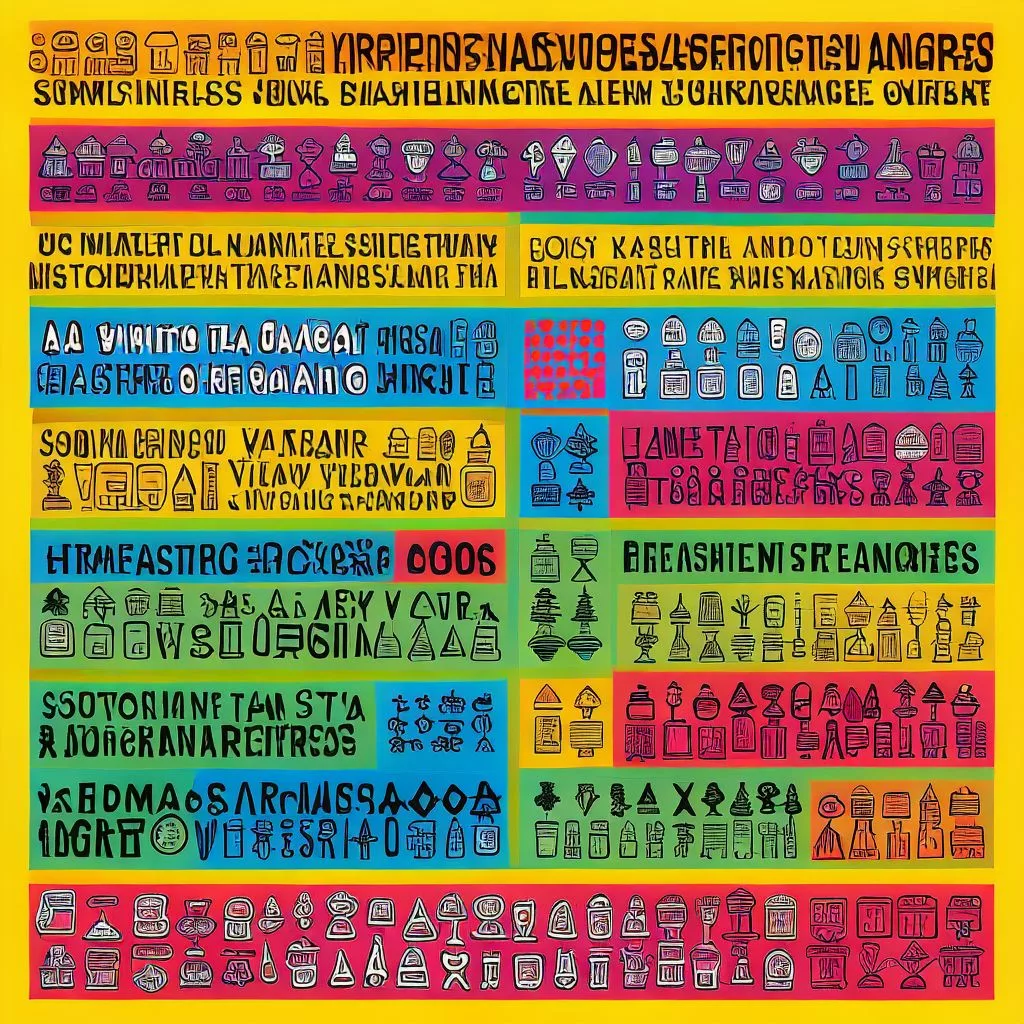The University of Cape Town (UCT) has launched an exciting new language policy that celebrates the beauty of multilingualism. By incorporating English, isiXhosa, and Afrikaans, this policy aims to create a more inclusive and welcoming space for all students. Officially unveiled on International Mother Language Day, the initiative emphasizes the importance of indigenous languages and cultural understanding. UCT’s focus on teaching isiXhosa and other local languages not only enriches learning but also helps students connect with South Africa’s diverse heritage. This bold step positions UCT as a leader in promoting equality and appreciation for all languages.
What is UCT’s new language policy and its significance?
The University of Cape Town’s new language policy promotes multilingual inclusivity by integrating English, isiXhosa, and Afrikaans in academic communication. Launched on International Mother Language Day, it aims to uplift indigenous languages, enhance cultural understanding, and foster an inclusive learning environment for all students.
The University of Cape Town (UCT) is embarking on a transformative journey aimed at fostering inclusivity and multilingualism within its academic community. Approved by the university’s Council in December 2024, UCT’s revised language policy seeks to integrate English, isiXhosa, and Afrikaans as key pillars of university communication. This initiative underscores UCT’s commitment to the vital role languages play in education and communication, aligning with broader global movements advocating for linguistic inclusivity.
Celebrating Diversity on International Mother Language Day
On February 27, 2025, UCT officially launched its revised language policy during the university’s observance of International Mother Language Day. This globally celebrated day, dedicated to the appreciation of linguistic diversity, served as the perfect occasion for UCT’s bold initiative. The event was marked by an atmosphere filled with cultural performances and heartfelt speeches that resonated with the themes of linguistic pride and diversity.
Professor Lolie Makhubu-Badenhors, director of UCT’s multilingual project, emphasized the initiative’s focus on uplifting marginalized indigenous languages in South Africa. She eloquently stated, “If we are only using a language foreign to the student, then the student can’t access knowledge.” Her words resonated deeply, capturing the essence of the challenges many students face when instruction occurs solely in non-native languages. This sentiment highlighted the necessity of implementing a more inclusive linguistic environment.
The celebration on International Mother Language Day was not just symbolic; it marked a significant step in UCT’s journey towards linguistic inclusivity. The vibrant atmosphere, enriched with diverse cultural expressions, reflected the university’s dedication to embracing and celebrating linguistic diversity within its academic and social fabric.
Initiatives to Promote Indigenous Languages
One of the striking features of UCT’s new policy is its requirement for all undergraduate students lacking proficiency in any indigenous South African language to take a course in isiXhosa communication. This mandate ensures that students not only learn a new language but also gain insights into the rich cultural heritage of isiXhosa-speaking communities. Many students have expressed enthusiasm for this new requirement, viewing it as an opportunity to connect more deeply with South Africa’s diverse cultural landscape.
UCT’s commitment to inclusivity extends beyond isiXhosa. The revised policy also promotes languages such as Afrikaaps (Kaaps), South African Sign Language (SASL), as well as Khoekhoegowab and N|uu – languages that possess significant cultural and historical value. This comprehensive approach aligns with the university’s broader mission to cultivate a learning environment where every language is considered a resource rather than a barrier.
Professor Mosa Moshabela, UCT’s Vice-Chancellor, emphasized the policy’s significance as a testament to the university’s dedication to embracing the extraordinary diversity within its community. He noted, “This policy will help us embrace both the extraordinary diversity within our community and an environment where language is valued as a resource for learning, research, and communication.” His statement encapsulates the university’s vision of fostering an inclusive academic atmosphere where linguistic diversity thrives.
Strategic Implementation and Community Collaboration
The revised language policy calls for faculties and Professional Administrative Support and Service (PASS) departments to develop customized language plans. These plans, subject to Senate approval and reviewed every five years, ensure that the policy’s implementation remains dynamic and responsive to the evolving needs of the community. This strategic approach fosters continuous improvement and adaptation, ensuring that UCT stays at the forefront of linguistic inclusivity.
The success of this initiative hinges on the collaborative support of the entire UCT community. Vice-Chancellor Moshabela stressed that “this policy reflects UCT’s commitment to ensuring that language is no longer a barrier to education but a bridge to knowledge, advancement, and innovation.” His statement highlights the transformative potential of the policy, envisioning a future where language empowers rather than restricts.
By striving towards a multilingual environment, UCT aims to empower its students and staff to engage with diverse languages and cultures. This engagement enriches their academic experience and prepares them to navigate a globalized world with cultural competence and empathy. The university’s proactive stance on multilingualism serves as a model for institutions worldwide, illustrating the profound impact of inclusive language policies.
Historical and Cultural Significance
The integration of multilingualism in UCT’s academic and social fabric draws parallels with historical and artistic movements that celebrated diversity. For instance, the Harlem Renaissance thrived on the richness of African American culture, challenging dominant narratives and asserting the value of diverse voices. Similarly, UCT’s language policy challenges the dominance of colonial languages, advocating for the recognition and celebration of linguistic diversity.
The policy’s launch on International Mother Language Day adds another layer of significance. Established by UNESCO in 1999, this day promotes linguistic and cultural diversity and multilingualism. UCT’s alignment with this global observance reinforces its commitment to these principles, positioning the university as a leader in promoting linguistic human rights and cultural preservation.
Enhancing Cultural Capital and Research
Incorporating languages like isiXhosa, Afrikaaps, SASL, Khoekhoegowab, and N|uu into UCT’s academic offerings resonates with the concept of cultural capital. French sociologist Pierre Bourdieu introduced this concept, highlighting how cultural knowledge and skills can empower individuals within a society. By equipping students with proficiency in indigenous languages, UCT enhances their cultural capital, enabling them to navigate and contribute to diverse cultural contexts.
This policy also has practical implications for research and communication at UCT. Multilingualism can enrich research initiatives by allowing scholars to engage with a broader range of sources and perspectives. It can also enhance communication within the university community, fostering a more inclusive and cohesive environment.
The policy’s emphasis on languages like Khoekhoegowab and N|uu is particularly noteworthy. Spoken by the indigenous Khoisan communities, these languages are among the oldest in the world. Their inclusion in UCT’s language policy not only preserves these linguistic treasures but also honors the cultural heritage of the Khoisan people. This move reflects a broader trend in academia and beyond, recognizing the value of indigenous knowledge systems and their contributions to global knowledge.
Ultimately, UCT’s revised language policy is a bold and commendable step towards fostering a genuinely inclusive academic environment. It challenges the dominance of colonial languages and promotes the rich linguistic diversity of South Africa. By doing so, it aligns with global movements towards linguistic justice and cultural preservation, positioning UCT as a pioneer in the realm of multilingual education.
As UCT continues on this transformative journey, it sets an inspiring example for educational institutions worldwide. The university’s proactive approach to multilingualism not only enhances the academic experience for its students and staff but also contributes to the broader goals of cultural competence, empathy, and global understanding. Through this initiative, UCT reaffirms its commitment to creating a more inclusive, empowering, and enriching academic environment for all.
FAQ: UCT’s New Language Policy
What is UCT’s new language policy and its significance?
The University of Cape Town’s new language policy promotes multilingual inclusivity by integrating English, isiXhosa, and Afrikaans in academic communication. Launched on International Mother Language Day, it aims to uplift indigenous languages, enhance cultural understanding, and foster an inclusive learning environment for all students.
When was the new language policy officially launched?
The revised language policy was officially launched on February 27, 2025, during UCT’s observance of International Mother Language Day. This date is significant as it celebrates linguistic diversity and the importance of indigenous languages globally.
What are the requirements for undergraduate students under this policy?
All undergraduate students who lack proficiency in any indigenous South African language are required to take a course in isiXhosa communication. This requirement helps students learn a new language and gain insights into the cultural heritage of isiXhosa-speaking communities.
Which indigenous languages are promoted under UCT’s new policy?
In addition to isiXhosa, UCT’s policy promotes other indigenous languages such as Afrikaaps (Kaaps), South African Sign Language (SASL), Khoekhoegowab, and N|uu. This comprehensive approach ensures that a variety of cultural and historical languages are recognized and valued within the academic environment.
How will the policy be implemented and evaluated over time?
The revised policy requires faculties and Professional Administrative Support and Service (PASS) departments to develop customized language plans, which will be reviewed every five years to ensure they remain relevant and effective. This strategic implementation allows UCT to adapt to the evolving needs of its community.
What are the broader implications of UCT’s multilingual policy?
UCT’s commitment to multilingualism aims to empower students and staff to engage with diverse languages and cultures, enriching their academic experience and preparing them for a globalized world. The policy challenges the dominance of colonial languages and promotes linguistic justice, setting an example for educational institutions worldwide.












